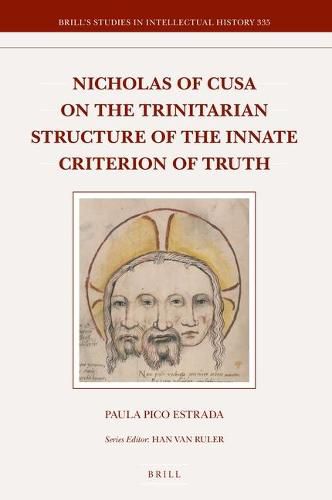Readings Newsletter
Become a Readings Member to make your shopping experience even easier.
Sign in or sign up for free!
You’re not far away from qualifying for FREE standard shipping within Australia
You’ve qualified for FREE standard shipping within Australia
The cart is loading…






In Nicholas of Cusa on the Trinitarian Structure of the Innate Criterion of Truth, Paula Pico Estrada offers an analysis of Nicholas of Cusa’s (1401-1464) unitrine conception of the human power of judgment, arguing that the innate criterion that guides human beings to their end is formed by a cognitive, an affective and a social dimension, and that it not only makes possible the systematization and evaluation of cognitive experience but also enables morality.
Based on a close reading of Cusanus’ philosophical treatises, the study deepens our understanding of Nicholas of Cusa’s epistemology, showing that his anthropological conception integrates philosophy and theology.
$9.00 standard shipping within Australia
FREE standard shipping within Australia for orders over $100.00
Express & International shipping calculated at checkout
In Nicholas of Cusa on the Trinitarian Structure of the Innate Criterion of Truth, Paula Pico Estrada offers an analysis of Nicholas of Cusa’s (1401-1464) unitrine conception of the human power of judgment, arguing that the innate criterion that guides human beings to their end is formed by a cognitive, an affective and a social dimension, and that it not only makes possible the systematization and evaluation of cognitive experience but also enables morality.
Based on a close reading of Cusanus’ philosophical treatises, the study deepens our understanding of Nicholas of Cusa’s epistemology, showing that his anthropological conception integrates philosophy and theology.